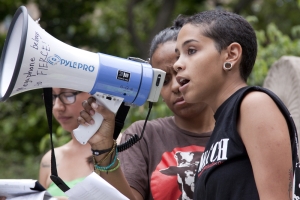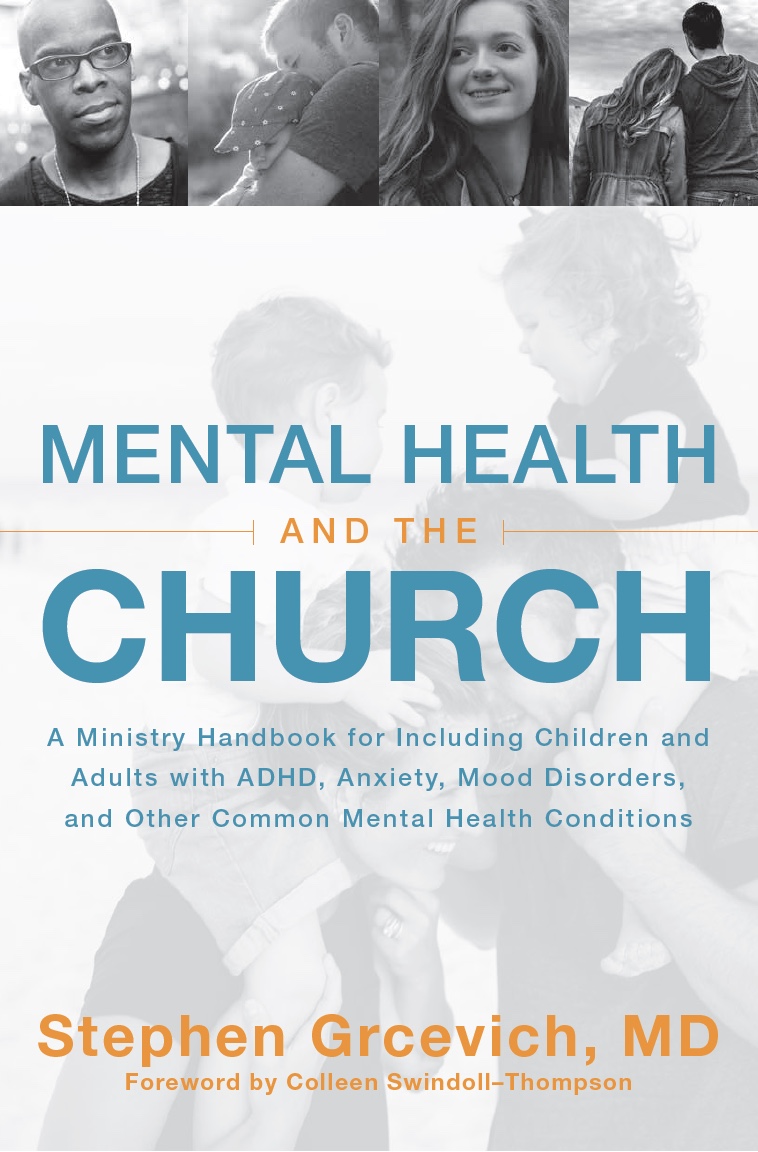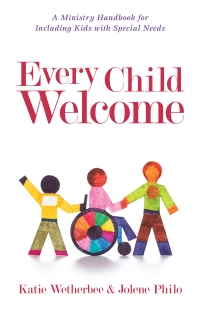 What would you do if a family came to your church with a child identified by their parents as “transgender?” What would the response be to parents who want their child to use the restroom corresponding to their’s child’s perceived gender identity or to participate in ministry activities based upon gender identity as opposed to the child’s anatomical sex? How would your student ministry respond to a gender-discordant teen undergoing hormonal therapy to prevent the onset of puberty or seeking to change their appearance to reflect their gender identity?
What would you do if a family came to your church with a child identified by their parents as “transgender?” What would the response be to parents who want their child to use the restroom corresponding to their’s child’s perceived gender identity or to participate in ministry activities based upon gender identity as opposed to the child’s anatomical sex? How would your student ministry respond to a gender-discordant teen undergoing hormonal therapy to prevent the onset of puberty or seeking to change their appearance to reflect their gender identity?
 I bet it’s safe to say these are issues few leaders or volunteers serving in children’s ministry or student ministry ever contemplated prior to assuming their current roles. But in the aftermath of the discussion surrounding the media coverage of the physical transformation of the 1976 Olympic Decathlon champion into Caitlyn Jenner, and today’s announcement by the Departments of Justice and Education that schools that refuse to allow students to use the restroom or locker room consistent with their gender as opposed to biological sex, the topic is now squarely front and center. In December of 2014, the highly-publicized suicide of Leelah Alcorn, a Cincinnati-area teen (pictured right) from a church-involved family has led to a national debate about treatment offered to teens with gender dysphoria.
I bet it’s safe to say these are issues few leaders or volunteers serving in children’s ministry or student ministry ever contemplated prior to assuming their current roles. But in the aftermath of the discussion surrounding the media coverage of the physical transformation of the 1976 Olympic Decathlon champion into Caitlyn Jenner, and today’s announcement by the Departments of Justice and Education that schools that refuse to allow students to use the restroom or locker room consistent with their gender as opposed to biological sex, the topic is now squarely front and center. In December of 2014, the highly-publicized suicide of Leelah Alcorn, a Cincinnati-area teen (pictured right) from a church-involved family has led to a national debate about treatment offered to teens with gender dysphoria.
Perhaps the most contentious topic of debate within both the medical community and the broader culture involves the trend on the part of some parents with the support of professionals to recognize younger and younger children as transgendered. Here’s a report from Kate Snow of NBC News telling the story of a family that made a decision to identify their preschool-age biological daughter (Mia) as a transgender boy (Jacob).
How do we make sense of the topics of gender non-conforminty and gender discordance in kids and what do we say to parents coming to us seeking advice?
Gender nonconformity (defined as variations in norms in gender role behavior such as toy preferences, rough and tumble play, aggression and playmate gender) is quite common among young children. The majority of children at some point in time exhibit some interest in toy, play and peer preferences more typical of the opposite gender. Gender discordance refers to discrepancy between an individual’s biological sex and their gender identity…their personal sense of self as male or female.
For the vast majority of kids who exhibit gender non-conformity (88%-98%), discomfort with the biological sex resolves during childhood as they develop the capacity for more flexible thinking and recognize that one can still be a boy or a girl despite some gender-nonconforming interests. A much smaller percentage of kids reach adolescence with persistent discomfort with their biological sex. They might follow several distinct developmental trajectories.

Editorial Credit: Glynnis Jones / Shutterstock.com
Among boys who reach adolescence with gender discordance, research suggests the majority (75-80%) demonstrate a homosexual/bisexual orientation by age 19. A second path is characterized by heterosexual orientation and a third, smaller group (2-12%) will continue to experience gender dysphoria into adolescence, and ultimately, adulthood. In one small follow-up study (N=25) of school age girls diagnosed with gender identity disorder, 24% were classified as lesbian/bisexual in behavior and 32% in fantasy as adults, with the remainder classified as heterosexual or asexual. 12% continued to experience gender dysphoria as adults. In another sample, gender dysphoria resolved by late adolescence or early adulthood for the majority of boys and girls referred for gender dysphoria during childhood. Of the subjects for whom gender dysphoria resolved, all of the girls and half of the boys reported a heterosexual orientation, while nearly all subjects of both sexes for whom gender dysphoria persisted developed a homosexual or bisexual orientation.
Last year, we looked at data describing mental and physical health concerns among adults with gender dysphoria prior to and following medical and/or surgical treatment. Despite data suggesting the majority of persons with gender dysphoria treated medically and/or surgically are satisfied with the results, an extraordinarily large percentage continue to struggle with mental illness. Rates of suicide attempts following treatment ranged between 43-45% in one long-term follow-up study from Sweden, and persons who underwent surgery were four times more likely than the general population to be admitted to a psychiatric hospital and nineteen times more likely to attempt suicide than their same-age peers without gender dysphoria. I can’t imagine any parent who would want their child to experience persistent gender dysphoria in light of what we know about the long-term mental health outcomes.
What do we know about teens with persistent gender dysphoria?
- They are more likely to experience depression. One study reported that 23.5% of a large sample of transgender women experienced depression during adolescence. Bullying and trauma may contribute to roughly 50% of the increased risk, according to this study.
- A sample of 180 patients (ages 12-29) from a community health center reported that transgender youth had a twofold to threefold increased risk of depression, anxiety disorder, suicidal ideation, suicide attempt, self-harm without lethal intent, and both inpatient and outpatient mental health treatment compared with cisgender-matched controls. No statistically significant differences in mental health outcomes were observed comparing FTM and MTF patients, adjusting for age, race/ethnicity, and hormone use
- They are more likely to have been victims of physical, psychological or sexual abuse, and more likely to have PTSD.
 The limited data available suggests markedly elevated rates of suicide among transgender youth. In this sample, 47% of transgender adults attempted suicide prior to the age of 25. In a smaller sample of transgender youth (ages 15-21, N=66), 45% seriously considered suicide and 26% had engaged in life-threatening behavior.
The limited data available suggests markedly elevated rates of suicide among transgender youth. In this sample, 47% of transgender adults attempted suicide prior to the age of 25. In a smaller sample of transgender youth (ages 15-21, N=66), 45% seriously considered suicide and 26% had engaged in life-threatening behavior.
- Higher than expected rates of autism spectrum disorders have been reported among children and teens with gender dysphoria. In this clinical sample, nearly 8% of kids with gender dysphoria met diagnostic criteria for autism. In addition to autism, higher rates of schizophrenia have been observed in clinically-referred samples of patients with gender dysphoria, and increased obsessional interests are seen among clinically-referred boys.
The question of what to do with children and teens with gender dysphoria in the face of insufficient data is the hot-button topic that their parents and the professionals who treat them are wrestling with. Here’s a study published last year describing some of the ethical issues the professional community is wrestling with…
(1) The absence of an explanatory model for gender dysphoria
(2) The nature of gender dysphoria… is it a normal variation in development, a social construct or mental illness?
(3) What role does physiological change during puberty play in the development of gender identity?
(4) The role of comorbid medical and mental health conditions
(5) What are the range of possible physical or psychological effects associated with pursuing (or choosing not to pursue) early medical interventions?
(6) At what age is a child/teen competent to consent to hormonal/surgical treatments and what rights should parents have to consent to treatment before kids are capable of making such decisions?
(7) The role of social context in how gender dysphoria is perceived.
To summarize, we know that most kids with gender dysphoria become comfortable with their biological sex as they progress through childhood. For those who continue to experience significant gender discordance as adolescents, far too many will have experienced trauma, mental illness, social isolation, self-injury and suicidal thoughts.
***********************************************************************************************************
 Key Ministry is pleased to make available our FREE disability ministry consultation service to pastors, church leaders and ministry volunteers. Got questions about launching a ministry that you can’t answer…here we are! Have a kid you’re struggling to serve? Contact us! Want to kick around a problem with someone who’s “been there and done that?” Click here to submit a request!
Key Ministry is pleased to make available our FREE disability ministry consultation service to pastors, church leaders and ministry volunteers. Got questions about launching a ministry that you can’t answer…here we are! Have a kid you’re struggling to serve? Contact us! Want to kick around a problem with someone who’s “been there and done that?” Click here to submit a request!





http://illinoisfamily.org/uncategorized/pediatricians-call-it-what-it-is-child-abuse/
There it is! The American College of Pediatricians is calling transgender indoctrination an abuse to children.
LikeLike
Hi Stacy,
Thanks for posting. The American College of Pediatricians is to be applauded for speaking out. Unfortunately, the American Academy of Pediatrics (which tends to embrace pretty much every progressive cause that comes along with an impact upon kids) and my own child psychiatry academy have a very different take on the issue.
LikeLike
So sad. Unfortunately, only with the test of time and many young people’s lives lost to suicide, will institutions hopefully see and learn the truth how wrong they were and make it right.
LikeLike
This issue was also of importance to me which is why I wrote about it too from a Christian perspective on the story of Josh/Leelah https://anchorofpromise.com/2015/01/11/transgender-crisis/
LikeLike